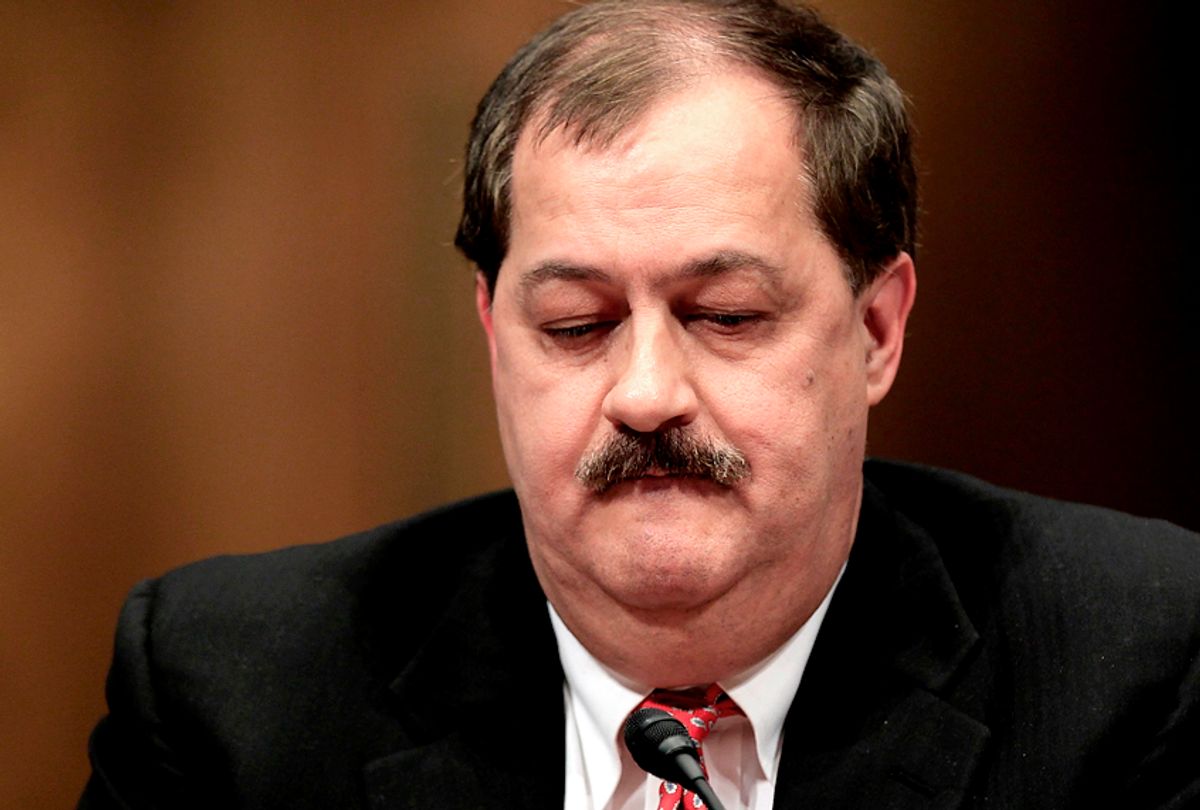Don Blankenship, the former coal baron who casually uses racist language with reporters and who went to prison for his role in a mine disaster that led to the deaths of 29 coal miners, announced on Monday that he would run for the Senate in West Virginia as a third-party candidate. This follows Blankenship's defeat in the West Virginia Republican Senate primary two weeks ago, after President Donald Trump and other Republicans pleaded with voters to oppose him.
[embed]https://twitter.com/realDonaldTrump/status/993443781281271808[/embed]
In a statement on Monday, Blankenship said he had accepted the nomination of the Constitution Party (formerly the U.S. Taxpayers' Party), an arch-conservative group dedicated to what it considers an "originalist" interpretation of the U.S. Constitution. He also took aim at Trump and Senate Majority Leader Mitch McConnell, R-Ky., for their aggressive efforts to derail his campaign and signaled that he's already anticipating a court fight with "the establishment" over his candidacy.
"This time we won't get surprised by the lying establishment," Blankenship said in a news release. "We were assured by White House political staff that they would not interfere in the primary election. Obviously, that turned out not to be true. Now that we know that the establishment will lie and resort to anything else necessary to defeat me, we are better prepared than before."
“We are confident that — if challenged — our legal position will prevail absent a politically motivated decision by the courts,” he promised.
Blankenship's bid could offer a big break to Senate Democrats. But before Sen. Joe Manchin III, a Democrat running for re-election in the solidly red state, celebrates a candidacy that could split the Republican vote, Blankenship must deal with West Virginia’s "sore loser" or "sour grapes" law, developed to keep losing primary candidates off the ballot.
According to the "sore loser" law, a candidate who runs for the nomination of a major political party and loses "cannot change her or his voter registration to a minor party organization/unaffiliated candidate to take advantage of the later filing deadlines and have their name on the subsequent general election ballot."
If Blankenship ultimately makes it onto the ballot in West Virginia's general election, he could split support for the state’s attorney general, Patrick Morrisey, who won the Republican nomination. That could lead Manchin to re-election.
Republicans see the seat, in a state Trump carried with about 68 percent of the vote in 2016, as a promising pickup opportunity this fall. Despite his vulnerability, Manchin, who served as the Mountain State's governor before winning a Senate seat in 2010, remains widely popular. (Republicans are arguably much likelier to pick off Sen. Joe Donnelly in Indiana, another endangered Democratic incumbent.)
In the meantime, Blankenship has presented himself as a model fit for the Constitution Party, whose goal is to affirm the "Christian character and heritage of our state, and the Bible as the basis of morality on which the legitimacy of our laws rest." Blankenship, who was still on probation until earlier this month, said it is was especially appropriate for him "to be nominated by the Constitution Party given its staunch and uncompromising commitment to upholding the United States Constitution."



Shares